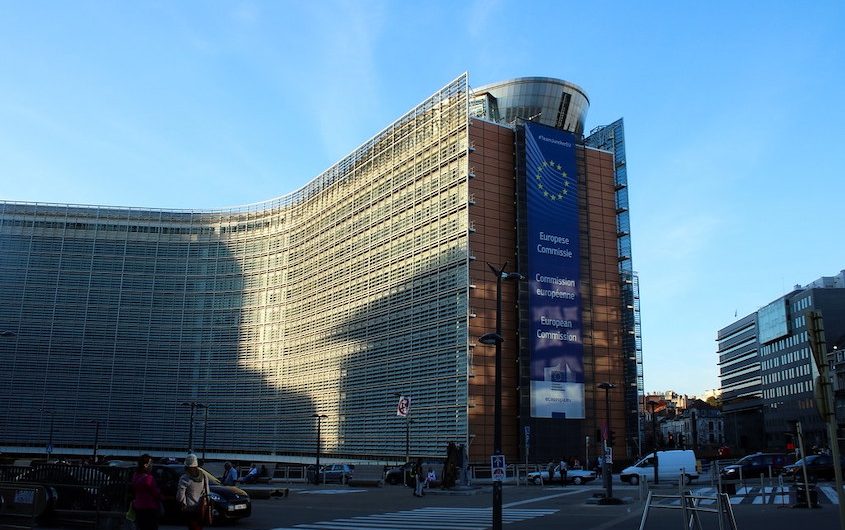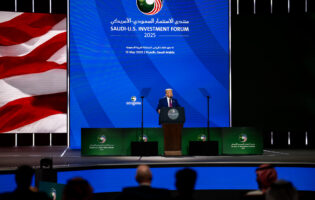
orangebrompton via flickr
The EU’s Trade Policy Review: Conflicting Signals for Transatlantic Strategy?

Peter S. Rashish
Vice President; Director, Geoeconomics Program
Peter S. Rashish, who counts over 30 years of experience counseling corporations, think tanks, foundations, and international organizations on transatlantic trade and economic strategy, is Vice President and Director of the Geoeconomics Program at AICGS. He also writes The Wider Atlantic blog.
Mr. Rashish has served as Vice President for Europe and Eurasia at the U.S. Chamber of Commerce, where he spearheaded the Chamber’s advocacy ahead of the launch of the Transatlantic Trade and Investment Partnership. Previously, Mr. Rashish was a Senior Advisor for Europe at McLarty Associates, Executive Vice President of the European Institute, and a staff member and consultant at the International Energy Agency, the World Bank, UNCTAD, the Atlantic Council, the Bertelsmann Foundation, and the German Marshall Fund.
Mr. Rashish has testified before the House Financial Services Subcommittee on International Monetary Policy and Trade and the House Foreign Affairs Subcommittee on Europe and Eurasia and has advised three U.S. presidential campaigns. He has been a featured speaker at the Munich Security Conference, the Aspen Ideas Festival, and the Salzburg Global Seminar and is a member of the Board of Directors of the Jean Monnet Institute in Paris and a Senior Advisor to the European Policy Centre in Brussels. His commentaries have been published in The New York Times, the Financial Times, The Wall Street Journal, Foreign Policy, and The National Interest, and he has appeared on PBS, CNBC, CNN, NPR, and the BBC.
He earned a BA from Harvard College and an MPhil in international relations from Oxford University. He speaks French, German, Italian, and Spanish.
The European Commission released its long-awaited Trade Policy Review (TPR) this week, placing it under the banner of “An Open, Sustainable and Assertive Trade Policy.” Perhaps because of the manifold and gratuitous tensions the Trump administration introduced to U.S.-EU relations, the TPR asserts that, “the EU will…give priority to strengthening its partnership with the U.S.,” especially on reform of the World Trade Organization and the “green and digital transformation.”
The timing of the TPR could be helpful in that regard. After what the Biden administration convincingly sees as a failed unilateral approach taken by the previous White House to China’s challenge to the world trading system, it has the ambition to find common ground with the EU (and other allies) on a new strategy. But the decision by the EU to sign a Comprehensive Agreement on Investment with China in December before consultations with the new Biden team raised questions about whether Brussels wanted to go it alone in handling Beijing. Does the Trade Policy Review offer the opportunity for the hoped-for fresh start?
The Commission shares what, from early indications, is the U.S. administration’s diagnosis of the central problem—what the TPR calls “the negative spillovers caused by [China’s] state-capitalist economic system.” Put more straightforwardly: the unlevel global playing field created by the country’s subsidies to its state-owned enterprises. The TPR sets out two objectives, reestablishing the WTO’s dispute settlement system and negotiating new multilateral trade rules, which will be key to success in this task.
Those two issues are addressed in depth in an annex called “Reforming the WTO: Towards a Sustainable and Effective Multilateral Trading System.” While the main TPR document has the studied and somewhat cautious tone of a negotiated text, the annex is much bolder, expressing without reservation that “the state continues to exert a decisive influence on China’s economic environment with consequent competitive distortions that cannot be sufficiently addressed by current WTO rules.” Moreover, “an essential building block for WTO reform is a high degree of convergence in the reform agenda between the United States and the EU.”
Of course, until the Biden administration unveils its strategy for countering China’s trade-distorting economic behavior, it won’t be fully clear what role the TPR can play in U.S.-EU cooperation. Before then, there are two conflicting signs of what may lie ahead.
The best way to rally domestic political support for strong U.S. engagement in the multilateral trading system will be to negotiate new disciplines covering Chinese policies alongside efforts to restart the WTO dispute settlement system.
On the one hand, the TPR’s strong interest in pursuing the U.S.-EU-Japan trilateral initiative begun during the previous U.S. administration could find favor with the Biden administration. The trilateral has focused on level playing field issues like subsidies, technology transfer requirements, and intellectual property rights.
On the other hand, when it comes to rebooting the WTO’s dispute settlement system, whose Appellate Body is blocked by the Trump administration’s failure to allow the appointment of new judges, it isn’t certain that the United States and the European Union will be aligned on what could be called the political economy of the issue.
The TPR is not shy about asserting that ensuring a quorum to hear new appeals at the WTO “should be addressed as a priority and not be linked to the other aspects of WTO reform.” And to underline the point: “In the absence of a functioning dispute settlement system, it is difficult to see what could be the motivation for countries to modernize and fill gaps in the rules.”
That argument could easily be turned around. Because without new trade rules that account for China’s state-dominated economy, what assurance would the United States or other market economies have that future WTO dispute settlement decisions will be fair?
The best way to rally domestic political support for strong U.S. engagement in the multilateral trading system will be to negotiate new disciplines covering Chinese policies alongside efforts to restart the dispute settlement system. A parallel, rather than a sequential, approach is likely to hold the greatest promise.









